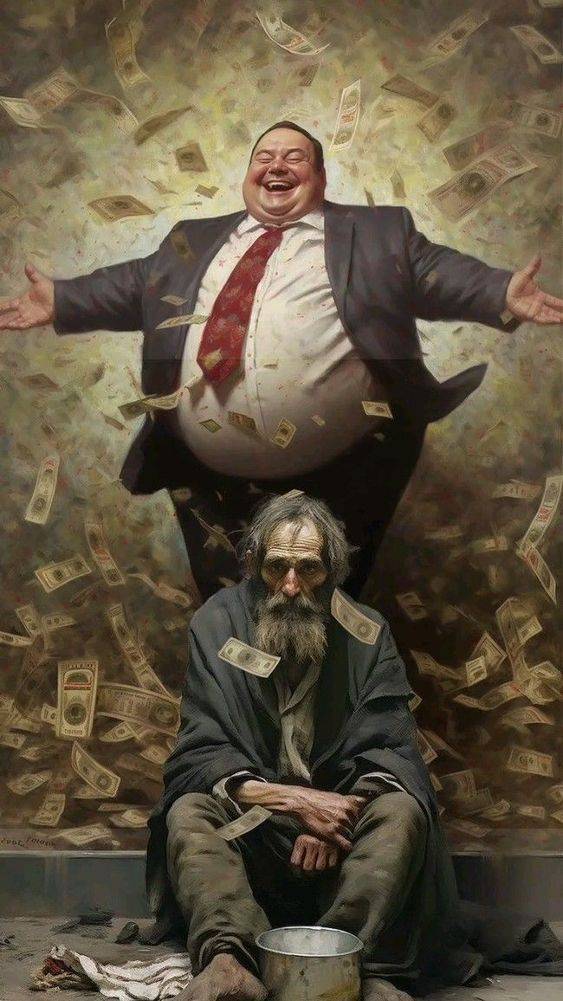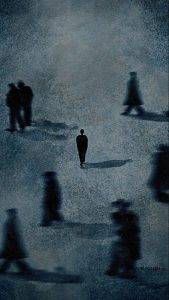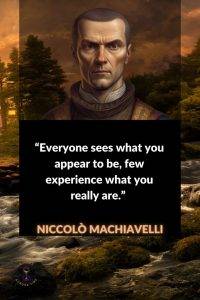We are beggars when we perpetrate an inner suicide, an act so hidden and insane that it makes us dependent on something, in constant fear of losing it and then, eventually, finding ourselves alone and misunderstood.
Life becomes what we think.
Who is the beggar living inside you?
The Beggar, sometimes or perhaps too often, is us.
The beggar is the one who absolutely needs something because without it they could not live. The beggar is/are those (I’d use they/them from now on) who accept(s) compromises in order to continue to make use of a comfortable situation even though it is wearing them down, both imprisoning and depriving them of the opportunity to live their life to the full.
We are beggars when we perpetrate an inner suicide, an act so hidden and insane that it makes us dependent on something, in constant fear of losing it and then, eventually, finding ourselves alone and misunderstood.
The beggar, very often, is us.
Life becomes what we think. And what we think is a collection of things we believe, of which we are certain, or almost certain. It is a pattern, a kind of biological programme with which, like any other species, we build a system of interactions called society.
Families, for example, are societies.
Societies are the constructs that confine people. People use tools, they make decisions based on constants and assumptions, and in the course of their lives, they construct non-original ideas.
One day I was at a Reiki class where a yoga teacher asked us what we thought was the cause of all evil.
We tried to answer. I raised my hand and said, “Expectations.”
He shook his head, letting me know that I had come close, but that it was not the root cause.
Then he answered for us. He said: “The cause of all evil is ignorance.” From ignorance comes fears. From fears come expectations. Expectations produce anxiety, and from anxiety comes stress, and obsession, which in turn leads to violence and so on.
I have never forgotten that lesson, even though I then really struggled to fully comprehend that information. I had it, I had obtained extraordinary truths, yet after the excitement and indoctrination, I went back to expectations, fears, etc.
Because you know, that’s how it works: there is a deep distance between information and awareness.
Information is an object that can be used by our mind at will, depending on our mood, perhaps to defend ourselves or to make us known. Every day we are flooded with information, and sometimes we use it against others, either positively or negatively.
But information, even of a profound truth, alone is not strong enough to change the person who has acquired it. It is when it becomes Awareness that everything changes. In Awareness there are no excuses, awareness opens our eyes, and that is quite different from mere knowledge of something.
Look at what has happened, and what is still happening, in the world: although we are immersed in knowledge (which we define through the ‘realisation’ of progress) and a boundless myriad of information, we live in a deeply conflicted and violent massive society.
What is the point of accumulating knowledge, if it becomes a pure role-playing game, where I am more capable than you or smarter, and where we continue to hold roles or hierarchical positions because we have studied, if we then do not use the power of knowledge for higher purposes? How do we justify the fact that we live in a society that thinks it knows and is unable to ensure our well-being?
Another teacher taught me: the most intelligent person on the planet is the one who respects the environment.
Do you understand, then, how many ways we have to define something?
Osho was talking about Zorba the Buddha. I immediately got an idea of what (I thought) he meant. Osho meditated inside the limousines that some rich Westerners gave him. He had expensive jewellery and watches that he also wore during lectures. There, even though I never read much about his definition of Zorba the Buddha, it was enough for me to observe him, and by observing him I understood his deeper meaning. Zorba the Buddha is us, those who want to be wise and live a life of affluence without caring about the consequences. To have the luxuries of wealth (Zorba) and to be masters of life (the Buddha).
The issue with Zorba the Buddha is that he lacks awareness. He has the information, and he will only use it to elevate himself over others. There would be nothing wrong with living in abundance consciously, but we are unable to do so because we know the definition and not the clear vision of what it means to be a Zorba the Buddha.
Osho, of course, did not want this. He said his words would be understood in two hundred years. Although he lived a controversial life, and some people ignored him because of the things they heard about, he was still a great philosopher and teacher. He was able to see deeper than anyone else, and this cost him dearly. I have been told that the same thing happened to the spiritual master Srila Prabhupada, founder of ISKON (International Association for Krishna Consciousness) and populariser of Krishna’s doctrine: Bhakti Yoga. After his death, people who thought they knew, having received knowledge (hence information) from him, betrayed, and created disorder and division within the Association, whose sole purpose was to bring awareness and love to the world through the fascinating figure of Krishna.
This is the problem with those who have not understood the information they have received and have failed to transform it into awareness: they have become a weapon, not the means. Osho and Srila Prabhupada were a means because they lived from pure awareness.
Imagine information as bullets. Imagine instead awareness as a seed. They look like two similar objects because they are small and they have to be put into something: the bullet into a gun and the seed into the ground. But what they produce is very different.
Awareness is pure growth.
Information will always remain only a weapon to be used for some purpose, and often it is not a noble purpose.
The ancient Chinese used to say: theory without practice is of little use. But practice without theory is dangerous.
How did I realise this?
By looking around me and then taking that look internally.
Between the ages of 20 and 26, I read everything, particularly books by spiritual masters from Osho to Aurobindo, from Napoleon Hill to Antony Robbins or Dale Carnegie, etc. Yet, no matter how much information I had absorbed and thought I knew a lot about life, I was constantly depressed, insecure and unsteady.
I soon realised that I too was a beggar.
I was begging for the love of others. Unconsciously I accepted compromises in the relationships I created with friends or lovers, so much so that my every gesture was a request for love.
“Please love me”. “Please don’t leave me”. “If you leave me, I am lost.” “Please don’t leave me.” “Don’t leave me alone.” “Be my friend.” “Love me.” “I cannot live without you.” “Don’t betray me.” Etc…
Osho said that in love one must be an emperor. If we analyse the phrase by decontextualising it, we are left with a terrible concept, because emperors usually rule, enslave, and create dependent situations. Yet, even emperors depend on something else, they could not exist without people and their offerings. However, I quickly realised what Osho was trying to say: Emperors were once those who ruled wisely and made the empire blossom through awareness and prosperity. In ancient India, the Vedic kings respected nature, they did not even allow the felling of a tree or the killing of an animal except for a good reason, which meant a necessity with no other alternatives.
In love be an emperor, meaning: allow growth and abundance. Allow prosperity in love. An emperor has no need to beg. That is the point. His love is pure and total, it is virtuous, and he could never want to harm anyone else.
Today, even with the environmental crisis, the mechanism of destruction of natural habitats has not yet stopped. So, there is a stark difference between those who govern us today and these legendary kings described in the Vedas or Taoist stories.
How so?
There is a lack of awareness. We know that we are damaging something that gives us life (hence, we have the information, and we have the information because scientists, doctors, etc. have told us so), but we are not aware enough to change this unhealthy trend.
Here is the first commandment in love, whether it is a relationship with the opposite sex (from engagement to marriage) or other types of interpersonal relationships: Do not beg.
Never think that your life is over without that partner, friend or alliance.
Second commandment: Thou shalt not lie to thyself. This means, for the purpose of turning information into awareness, admitting to yourself that you are a slave to a situation (or several), that you are accepting compromises that are disadvantageous to your freedom and growth, etc. Admitting this is a first step, and will shorten the distance between Information and awareness of who we are. Discovering who we deeply are will take us from ignorance to awareness.
Third commandment: Be truthful. The Third C is the natural extension of the Second C, and consequently of the First C which we have mentioned being don’t beg.
Begging means harming ourselves. It means not developing your potential and letting someone else guide your life.
Osho said that it is better to live immersed in your darkness than in the reflected (and illusory) light of someone else. Remember that only the light of an authentic spiritual master can guide us, for the guru is there to allow us to shine with a fire that will be ours alone. If we beg for love and friendship, we delegate to someone else the task of enlightening us. Osho, however, warned about this and pointed out that however absurd it may be, if one is not fortunate enough to meet an authentic master, it is much better reside in our darkness than the illusion of another.
The human being has incredible resources within himself, and he has demonstrated this throughout his history. You have the same incredible resources which I’m disclosing, and with them, you can shine without having to shine with reflected light or be obscured by someone else’s shadow.
If great personalities such as Galileo Galilei, Gandhi, Srila Prabhupada, Joan of Arc and many others had accepted the compromises imposed by the societies in which they lived, if they had begged and not fought by shining their light, we would today think that the earth is the centre of the solar system, that great feats cannot be achieved, that life is a sentence between hell and heaven, that we are born in sin, that one’s doctrine is more important than someone else’s, etc.
True progress comes from those who did not compromise and turned the information of the truths they received in their pre-existing world into Awareness. And Awareness, believe me, changes everything.
Who then is the beggar living inside you?
It is a side of us that is insecure, standoffish, depressed, always struggling between can and can’t, between try or don’t try, that punishes itself, that allows itself to be demoralised and blamed; it is he or she who needs to be accepted by others and doesn’t dare to show themself for who they are, because approval is more important than essence. The beggar is a programme, a prison, a lake of blood and a disease that stops breathing.
We live within the limits of the limit, within the boundaries of states and ideologies, we don’t need to live within the limits of those who want to limit us within sick relationships feeding jealousies and obsessions. If you look around carefully, you will discover that life is more than the little situations that torment you and that your insecurities are the insecurities of so many others. Value your freedom, don’t beg for it.



